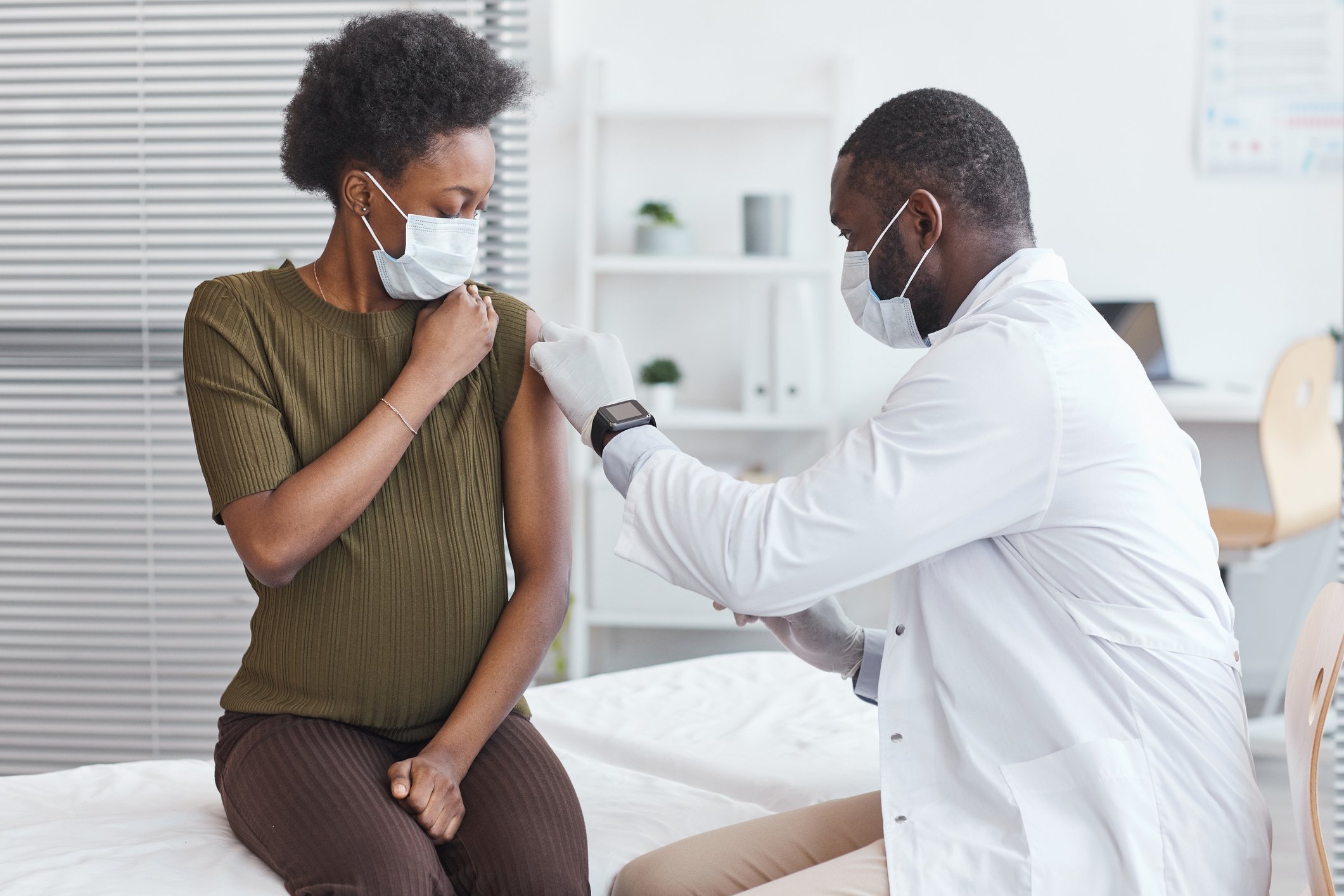
Tdap (Pertussis) Vaccine
Tdap is the vaccine that protects adults against pertussis (whooping cough).
Pertussis (whooping cough) is a contagious disease that can be deadly in young babies. It starts with cold-like symptoms and then can cause a bad cough. Coughing can be so severe that it can be hard to catch your breath. You may make a whooping sound as you try to get air.
Babies, especially those younger than 1 year, can become very sick if they get pertussis. Instead of coughing, they may gasp, gag, or throw up. They can turn blue from lack of oxygen. Apnea (when a baby stops breathing for a short time) and seizures may occur.
Some babies get pneumonia as a result of having pertussis. Approximately one-half need to go to the hospital. In the United States, a small number of infants die each year from pertussis.
-
There are two vaccines for pertussis that are given at different ages and for different life situations:
DTaP (diphtheria, tetanus, and pertussis) is given to babies and children. It protects against pertussis and two other serious diseases. Babies get doses of DTaP at 2, 4, and 6 months of age and then boosters at 15–18 months and 4–6 years.
Tdap (tetanus, diphtheria, and pertussis) is a booster shot. It is given to the following people:
Children aged 11–12 years
At least once to adults who have never had Tdap; it can be given at any time, regardless of when they last got a tetanus booster (Td)
Pregnant people during each pregnancy
-
Pregnant people can protect their babies before they are born by getting Tdap during pregnancy. Babies can’t be vaccinated until they are 2 months old. They aren’t protected against pertussis until they can get the vaccine. Getting the Tdap vaccine during pregnancy reduces the risk of babies getting whooping cough before 2 months of life by 78%.
-
When you get Tdap, your body immediately starts making protective antibodies. These are the proteins made by your immune system that target pertussis if you are exposed to it.
These antibodies cross the placenta and enter your fetus’s bloodstream. When your baby is born, they will have enough antibodies to help protect against pertussis until it’s time to get the vaccine at age 2 months. Getting Tdap during every pregnancy boosts your antibodies so that the maximum amount can be transferred to your fetus.
-
The best time to get Tdap is between weeks 27 through 36 weeks of pregnancy. It’s recommended that you get it as early as possible within this timeframe. That timing helps you pass the most antibodies possible to your fetus before you deliver. However, it’s safe to get Tdap at any point during your pregnancy.
-
Yes. Tdap vaccination in pregnancy is very safe. Research done in the last 10 years has shown that getting the vaccine during pregnancy doesn’t increase the risk of pregnancy problems or birth defects. Read more about Tdap’s safety record here.
-
The vaccine has very few side effects. Pain and redness can occur where the injection is given. If any pain, redness, or swelling lasts beyond a few days, contact your healthcare professional.
Quick Facts
Pertussis (whooping cough) is a contagious disease that causes a bad cough.
In babies, it can be very serious. Approximately one-half of babies who get pertussis end up in the hospital.
There is a vaccine for pertussis, but babies don’t get it until they are 2 months old. You can protect your newborn by getting vaccinated with the pertussis vaccine (Tdap) when you are pregnant.
To give your baby the best protection, you need to get Tdap during each pregnancy. The ideal time is between weeks 27 through 36 of pregnancy, preferably during the earlier part of this time period.
Tdap has been proven to be safe during pregnancy. It does not cause birth defects or pregnancy complications.
Glossary
Antibodies: Proteins made by the immune system in response to a foreign substance, such as a virus.
Immune system: The cells and organs that protect the body against foreign substances, such as bacteria and viruses.
Pertussis: A contagious disease that causes severe coughing and is especially serious for babies younger than 1 year. Also called whooping cough.
Placenta: A special organ that develops during pregnancy. It allows the transfer of nutrients, antibodies, and oxygen to the fetus. It also makes hormones that sustain the pregnancy.
This resource was supported by the Society for Maternal-Fetal Medicine (SMFM) and the Centers for Disease Control and Prevention (CDC) cooperative agreement CDC-RFA-DD-23-0004 Enhancing Partnerships to Address Birth Defects, Infant Disorders and Related Conditions, and the Health of Pregnant and Postpartum People. The views expressed by the authors do not necessarily reflect the official policies of the Department of Health and Human Services nor represent an endorsement by the U.S. Government.
Last Updated: October 2024
